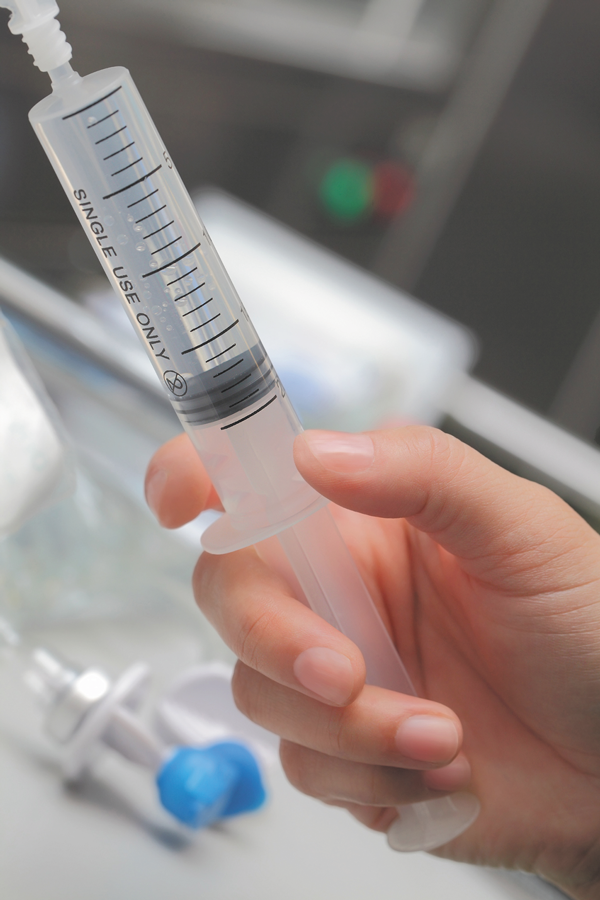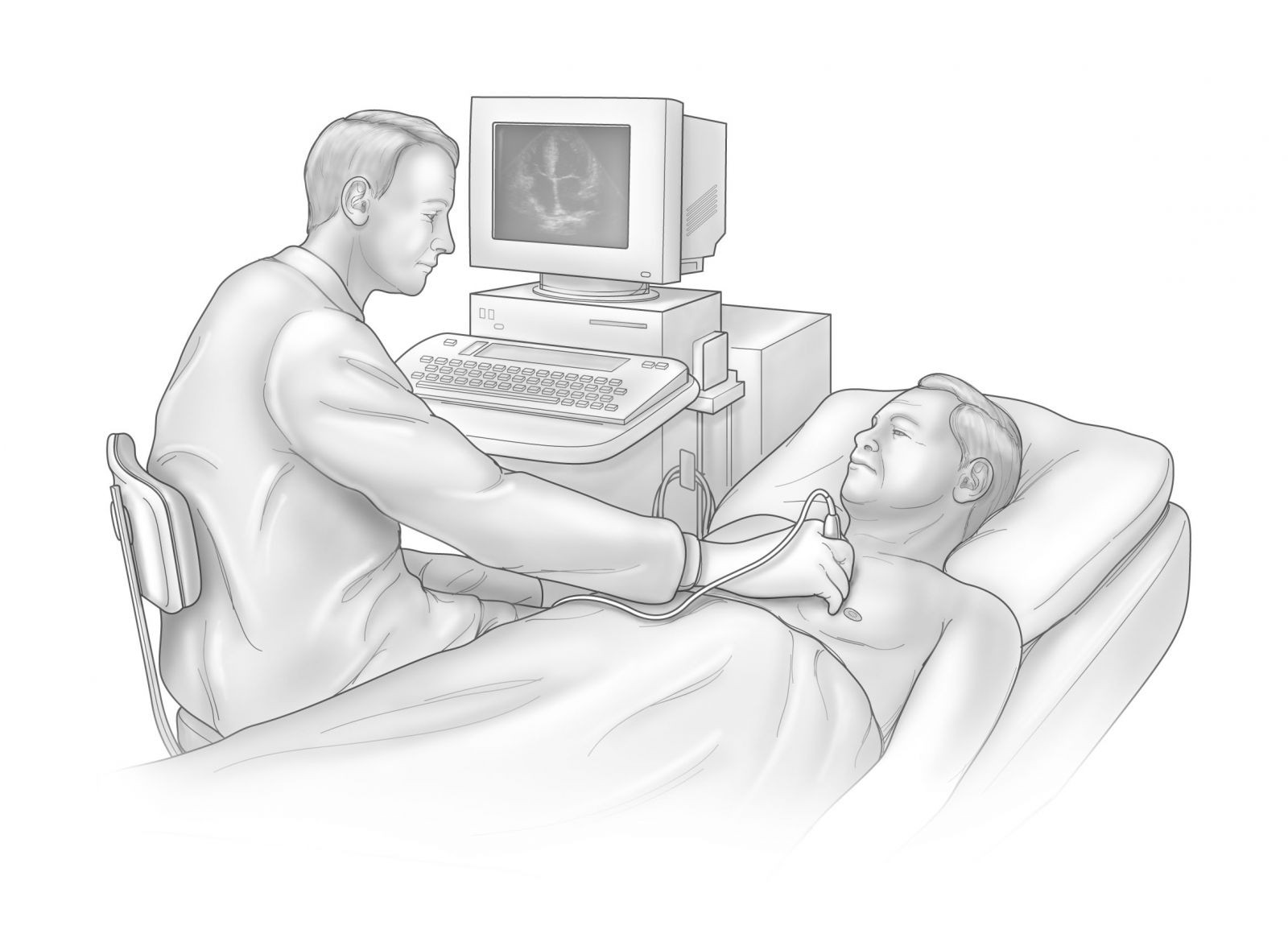
How — and why — to fit more fiber and fermented food into your meals

UTI in older women: Why postmenopausal women are susceptible to urinary tract infection, and what to do about it

Can a routine vaccine prevent dementia?

Some adults may need a measles booster shot. Who should get one and why?

Less butter, more plant oils, longer life?

Healthier planet, healthier people

Counting steps is good — is combining steps and heart rate better?

Appendix pain: Could it be appendicitis?

Can saw palmetto treat an enlarged prostate?

How does Ozempic work? Understanding GLP-1s for diabetes, weight loss, and beyond
Heart Failure Archive
Articles
Women less likely than men to receive potentially lifesaving heart device
Research we're watching
Women experiencing heart failure are less likely than men with the same condition to receive a mechanical heart pump designed to help blood circulate through the body, says a study published in the September issue of the journal Circulation: Heart Failure. The pump, called a left ventricular assist device, or LVAD, is typically used in people who have advanced heart failure. Looking at data from nearly 30,000 hospitalizations in which people received an LVAD device, the researchers found that women made up only 21.9% of those recipients. That number represented a decline from 2004, when 25.8% of LVAD recipients were women. The study's author said the difference might reflect a reliance on outdated statistics that showed women were more likely to die after receiving LVAD devices. This is no longer the case with new versions of the device.
Image: JFsPic/Getty Images
Stay on top of heart failure symptoms
Heart failure — this dire-sounding term often brings to mind a heart that has beat its last. Not so. Heart failure means that the heart isn't able to pump enough blood to meet the body's needs. Common effects of heart failure include fatigue, shortness of breath, and swelling in the legs.
Many people are surprised to learn that heart failure is often a manageable condition. Taking medications, balancing exercise and rest, following a low-sodium diet, and being careful about fluid intake can help keep it in check. But heart failure can be unpredictable. After a long stretch of being under control, it can flare up, and even require a hospital stay.
Red meat, TMAO, and your heart
A substance called trimethylamine N-oxide, which is produced when your body digests red meat, may raise the risk of cardiovascular problems.
Experts used to think that red meat raised your risk of heart disease simply because it was high in saturated fat. But today that picture has gotten more complicated thanks to the discovery of a metabolite — a substance produced during digestion and metabolism — called trimethylamine N-oxide, or TMAO.
According to a news article published June 11 in JAMA, three recent analyses have linked high blood levels of TMAO with a higher risk for both cardiovascular disease and early death from any cause. In one of those studies, researchers found that people with higher levels of TMAO in their blood may have more than twice the risk of heart attack, stroke, or other serious cardiovascular problems, compared with people who have lower levels. Other studies have found links between high TMAO levels and heart failure and chronic kidney disease.
What is a bubble study?
Ask the doctor
Q. My cardiologist mentioned that he was going to do a "bubble study" during my echocardiogram. What is that?
A. During an echocardiogram, a technician uses a probe that emits high-frequency sound waves (ultrasound) that "echo" off the structures of your heart. The waves, which are translated into video images visible on a monitor, can reveal in-formation about your heart's structure and function. A bubble study gives added information, as it can identify potential blood flow issues inside your heart.
A diet that may stave off heart failure
Research we're watching
A plant-focused diet long touted for its ability to lower blood pressure may also help prevent heart failure, according to a new study.
The DASH diet, which stands for Dietary Approaches to Stop Hypertension, emphasizes fruits, vegetables, whole grains, low-fat dairy products, poultry, fish, and nuts while minimizing salt, sugar, and red meat consumption.
Regular exercise helps reverse age-related changes in your heart
Moderate workouts on most days of the week may be enough for heart-healing benefits.
Image: © kali9/Getty Images
Good news: If you've spent most of your life as a competitive master athlete who trains more than six days a week (in addition to competitions) your heart probably looks and performs like one that is much younger than its chronological age.
Doesn't sound like you? Don't worry, there's also some good news for the rest of us. Even if you've spent more time hanging out than working out over the past few decades, starting an exercise program in middle age might earn you a younger-looking heart too.
Certain pain relievers could harm your heart
But use is primarily a concern for people who take them over a long period or who have certain health risks.
Image: © clu/Getty Images
Numerous studies in recent years have raised concerns that common pain relievers known as nonsteroidal anti-inflammatory drugs (NSAIDs) increase the risk of cardiovascular problems, such as heart attack and stroke.
A study published September 4 in The BMJ seems to confirm the risks associated with NSAIDs and notes that one medication in particular — diclofenac (Voltaren) — is associated with even higher risks to cardiovascular health than others in the same category.
Walking linked to lower heart failure risk in older women
Research we're watching
Image: © kali9/Getty Images
The more a middle-aged or older woman walks or does other exercise, the lower her risk of developing heart failure, a new study suggests. Heart failure — which means the heart is too weak or too stiff to pump enough blood through the body — affects some 5.7 million Americans.
Researchers tracked the exercise habits and heart health of more than 137,000 women who were ages 50 to 79 when the study began. After an average follow-up of 14 years, women who got at least some physical activity were 11% less likely to develop heart failure than those who didn't exercise at all — and those with the highest levels of physical activity were 35% less likely to develop heart failure.
Exercise: Better starting later than never
Research we're watching
Image: © adamkaz/Getty Images
Exercising regularly throughout life is the best way to keep your heart healthy. But starting to exercise even in late middle age may lessen the risk of heart failure, according to a report in the May 15 issue of Circulation. Heart failure, a gradual decline in the heart's ability to pump enough blood to meet the body's needs, affects about 6.5 million people in the United States.
The study involved more than 11,000 people who were part of a long-running project begun in the late 1980s, the Atherosclerosis Risk in Communities Study. Every six years, participants got medical testing and filled out questionnaires about their physical activity.
When the heart pumps normally but struggles
Ask the doctor
Illustration by Scott Leighton
Q. I was recently admitted to the hospital with heart failure and received a heart ultrasound. The test report stated that my heart's pumping ability is normal. I don't understand. Was my diagnosis wrong, or is the test wrong?
A. If you were diagnosed with heart failure in the hospital, I'm presuming that you were admitted with symptoms such as shortness of breath, fatigue, and difficulty doing everyday activities. Other common symptoms include swelling in your legs and feet and trouble breathing at night.

How — and why — to fit more fiber and fermented food into your meals

UTI in older women: Why postmenopausal women are susceptible to urinary tract infection, and what to do about it

Can a routine vaccine prevent dementia?

Some adults may need a measles booster shot. Who should get one and why?

Less butter, more plant oils, longer life?

Healthier planet, healthier people

Counting steps is good — is combining steps and heart rate better?

Appendix pain: Could it be appendicitis?

Can saw palmetto treat an enlarged prostate?

How does Ozempic work? Understanding GLP-1s for diabetes, weight loss, and beyond
Free Healthbeat Signup
Get the latest in health news delivered to your inbox!
Sign Up











